I’m a firm believer that experience and knowledge play key roles in our angling success. They give us a leg up on, say, the rank beginner, whose experience and knowledge by definition are limited, shallow. But I also believe there are times when experience and knowledge can work against us, when they conspire to hamstring success instead of promulgate it.
If we are alert and attentive when we’re fishing, the accumulation of our experience over time equips us with an understanding of fish behavior, insect activity patterns, seasonal rhythms, and the influences of various kinds of weather. It becomes possible to predict—often with uncanny accuracy—where and when to find the best fishing. As these predictions come to pass time and again, the lines of thinking that begat them can become reinforced and rigid. A certain narrowing of thought takes place. Tunnel vision of the mind, if you will. I’ve watched friends succumb to the effects of this phenomena many times. They end up going fishing only under a set of conditions considered to be “optimal" or “peak”. Lacking those conditions, they deign never to leave the house. Whither then the chance for serendipity? I mean, as far as I can tell, not going fishing pretty much guarantees not catching anything.
I fall into this trap now and then myself. Here’s an instance where I dodged it—barely. It was a mid-June day, and after arriving home from the morning shift at the fly shop, I felt the urge to go fishing. My kitchen clock read 1:00 p.m. Now, the afternoon was already hot and sunny—exactly the kind of afternoon that, when it comes to fishing, my experience says to dismiss outright.
But the season was still young and I was antsy, so into the car went my gear. Fighting my better judgement the whole way, I drove to the Madison River north of town. I figured my afternoon would likely amount to nothing more than a nice walk along the river but, hey, at least I’d be fishing. And for two long hours under a sun-shot sky, that’s exactly what I got—a nice walk. Upriver. Quite a long way.
Then, while rounding an undistinguished bend, I spied what appeared to be the remnants of a riseform. I stared the spot down. Five minutes passed; nothing showed. Knowing I had nothing to lose by making a few casts, I worked my way into position and offered up a Pale Morning Dun. As my second cast curled downstream, a rather large trout rose up and summarily inhaled my fly. A spirited fight ensued, culminating in the netting of a beautiful female brown trout.
For the remainder of the afternoon I never saw another fish, never caught another fish. My intuition had essentially been correct—this was not an afternoon for hatches, there would be no feeding fish. But by intentionally disregarding what experience and knowledge were telling me, I remained open to the possibility of serendipity. A serendipity manifested in shades of copper, yellow and red—none of which I’ll soon forget. Indeed, that lone trout was a powerful, telling reminder that sometimes experience and knowledge can take you only so far.





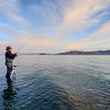
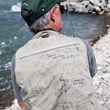

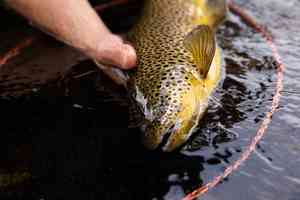




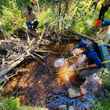
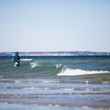




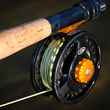
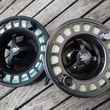



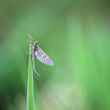



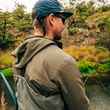

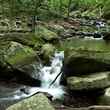
Comments